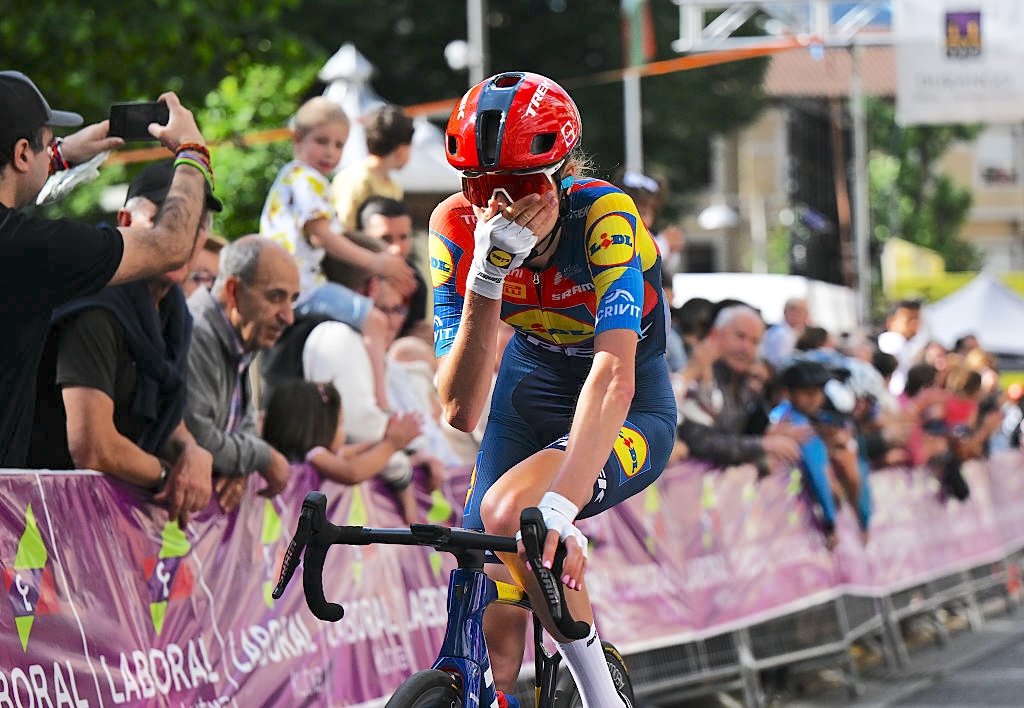Pozzato crashes out of Paris-Roubaix
Italian knocked out of rematch with Boonen
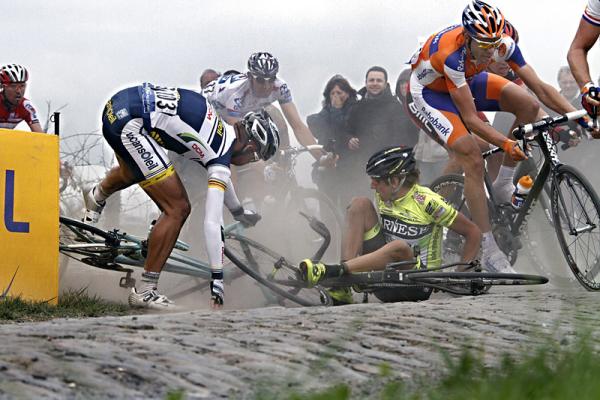
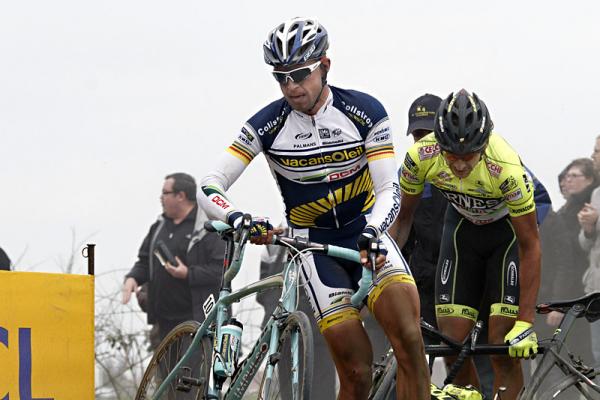
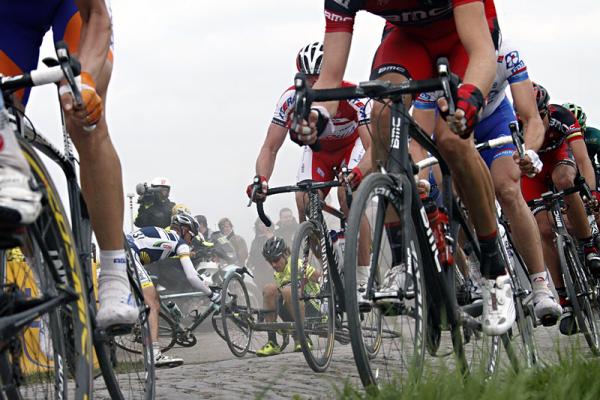
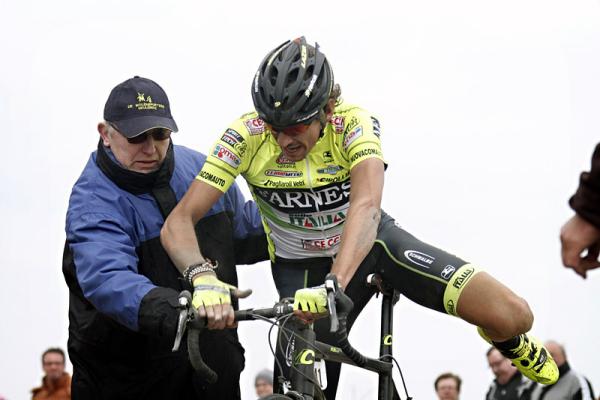
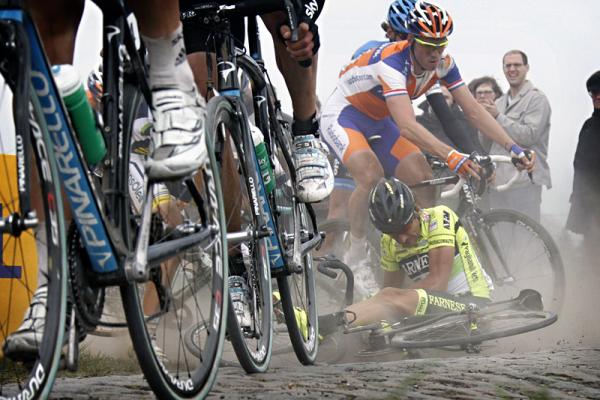
With Fabian Cancellara the grand absentee, the big match at Paris-Roubaix was supposed to be between Tom Boonen (Omega Pharma-QuickStep) and Filippo Pozzato (Farnese Vini-Selle Italia). After going 12 rounds at the Tour of Flanders, it was Boonen who took the decision in the sprint at Oudenaarde, but Pozzato had earmarked the rocky road to Roubaix as the perfect venue for the rematch.
On the cobbles at Orchies with a shade under 60 kilometres to go, it all looked to be going according to the script. Boonen, all muscle and Flemish power, put in the first jab, hitting the front and stringing things out. The more graceful Pozzato was quick to parry the blow with some finesse of his own, closing the gap with typically fluid pedal strokes.
The anticipated slugging match would never materialise, however. Shortly afterwards, Boonen, seconded by his teammate Niki Terpstra, opened a small gap over Pozzato, Alessandro Ballan (BMC) and Sébastien Turgot (Europcar). Capitalising on a moment of hesitation from the two Italians, the Omega Pharma-QuickStep pair rammed home their advantage, pummelling the road to stretch their lead out to twenty seconds.
Moments later, Pozzato was sprawled on the canvas. The knock-out punch was delivered not by Boonen but by the cobbles at Bersée, where Pozzato's wheels slipped from under him on a right hand bend. At that point, the Italian and the chasers were still only 20 seconds down, but as he gingerly remounted, it was clear that his hopes of victory had already evaporated. Suffering from a blow to his right knee and calf, Pozzato abandoned the race once the gap to the leaders became insurmountable.
"It's a big disappointment because Pozzato was in great condition, he was really very good but unfortunately he was taken out of the race by a crash," Farnese Vini-Selle Italia directeur sportif Serge Parsani told Cyclingnews afterwards as he stood forlornly by the team bus in the Roubaix drizzle. "He hit his right leg and had difficulties in pedalling, and that's why he abandoned."
Parsani came to the team with Pozzato from Katusha during the off-season, and he has been part of the rider's entourage for much of his career, since his professional debut at Mapei and during his spell at QuickStep. While his wounded protégé mulled over his disappointment aboard the team bus, Parsani was on hand to speak for the camp.
Even if his subsequent crash meant that it was perhaps a moot point, Pozzato had appeared to call on Alessandro Ballan (BMC) to help close the gap to Boonen when the Belgian sallied clear in the company of Terpstra. When Ballan refused, citing the presence of his teammate Thor Hushovd in the group behind, Boonen's advantage stretched out still further.
The latest race content, interviews, features, reviews and expert buying guides, direct to your inbox!
"It's always easy to talk after the event, but when Boonen began forcing on the pavé, there were five riders with him," Parsani said. "After that, Pozzato waited for some help from Ballan which never arrived. Boonen took 100 metres and he was away. There wasn't a great deal of organisation behind after that, but when Pozzato fell, the gap was still only 20 seconds and it was still all to play for."
Hushovd never made the junction back to the Ballan group and Boonen inexorably marched clear to victory, but Parsani had little truck for dissecting the rights and wrongs of the BMC tactics, particularly given the fate that would befall Pozzato shortly afterwards. "I don't know, that was for them to decide during the race, and unfortunately it's a situation that you can't reverse now," he said. "Unfortunately, it all ended up the way it did."

Barry Ryan was Head of Features at Cyclingnews. He has covered professional cycling since 2010, reporting from the Tour de France, Giro d’Italia and events from Argentina to Japan. His writing has appeared in The Independent, Procycling and Cycling Plus. He is the author of The Ascent: Sean Kelly, Stephen Roche and the Rise of Irish Cycling’s Golden Generation, published by Gill Books.
